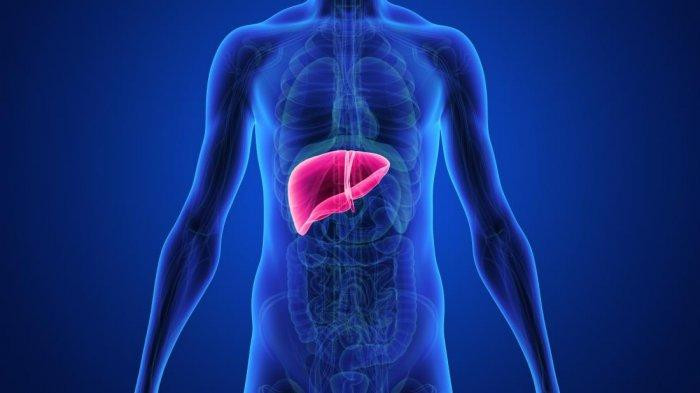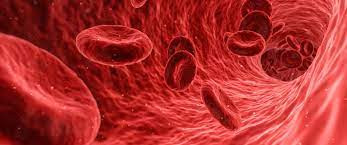Definition
The AST test is a diagnostic procedure used to measure the level of AST (Aspartate Aminotransferase) in the blood. AST, also known as Serum Glutamic Oxaloacetic Transaminase (SGOT), is an enzyme that plays a vital role in the metabolism of amino acids, which are the building blocks of proteins. High levels of AST can be found in the liver, heart, pancreas, and muscles, with lower levels present in other tissues throughout the body. Normally, AST is found in low levels in the blood. However, when cells in the liver or muscles are damaged or disrupted, AST is released from these cells and enters the bloodstream, leading to elevated AST levels, which can be detected through a blood test.
Increased AST levels above the normal range can indicate liver damage or disease, muscle cell damage, or issues with the heart or pancreas. However, AST levels may also temporarily rise due to certain conditions, such as severe burns, seizures, surgery, or intense physical activity.
Doctors typically order an AST test if a patient has symptoms suggestive of liver dysfunction or damage. Symptoms that may indicate liver issues include:
-
Nausea and vomiting
-
Weight loss
-
Unexplained fatigue or weakness
-
Jaundice (yellowing of the skin and eyes)
-
Abdominal pain or swelling, especially in the upper right side
-
Swelling in the legs
-
Dark-colored urine
-
Pale, slightly yellow stools
-
Increased itching on the skin
In some cases, the AST test may be conducted even without specific symptoms if you are at higher risk for liver disease, such as having a family history of liver problems, heavy alcohol consumption, obesity (overweight), diabetes (diabetes mellitus), or taking medications that can potentially affect the liver.
The AST test is typically performed alongside other tests, such as SGPT, ALP, and bilirubin, to diagnose and monitor liver conditions. It may also be included as part of routine blood screenings or checkups.
Indication
The AST test is commonly performed in the following situations:
-
To help establish a diagnosis of liver disease when clinical signs or symptoms are present
-
To monitor AST levels in patients undergoing treatment for certain diseases
-
For screening purposes during medical check-ups
Contraindication
There are no specific contraindications or conditions that would prevent someone from undergoing the AST test.
Preparation Before the Test
No special preparation is required for the AST test, and it can be performed without the need for fasting. However, it is recommended that you consult with your doctor before the test, as certain conditions may interfere with the accuracy of the results and prevent them from reflecting your true health status.
Test Procedure
The AST test generally requires a blood serum sample of 0.25 to 0.5 ml. This sample is taken from a vein and placed into a specialized collection tube. Laboratory personnel will wear gloves and Personal Protective Equipment (PPE) while handling the sample.
Before collecting the blood sample, the healthcare provider will apply an elastic band to your arm to make the veins more visible. The puncture site will be cleaned with antiseptic gauze, usually in the elbow crease area. Once the blood is drawn and placed in the tube, the elastic band will be removed, and pressure will be applied to the puncture site to stop any bleeding. The procedure typically takes only a few minutes. The blood sample will then be analyzed in the laboratory using specialized equipment, and the results can be available in a few hours.
Normal and Abnormal Values
The normal AST value range is differentiated based on age and gender. Below is the normal and abnormal value range for AST test results.
Adult Males
|
Value (U/L) |
Interpretation |
|
8 - 48 |
Normal |
|
>48 |
High |
Adult Females
|
Value (U/L) |
Interpretation |
|
8 - 43 |
Normal |
|
>43 |
High |
Children Aged 1–13 Years
|
Value (U/L) |
Interpretation |
|
8 - 50 |
Normal |
|
>50 |
High |
However, each laboratory may have slightly different value ranges depending on the equipment or machines used for testing.
Results and Recommendations (Follow-up Tests)
Normal AST Results
If your AST test results fall within the normal range, it suggests that you are likely living a healthy lifestyle. It is important to continue maintaining a balanced lifestyle to prevent conditions that may cause elevated AST levels.
High AST Results
If your AST test results are elevated, you should consult a doctor. The doctor may recommend changes to your diet and lifestyle to promote better health or even suggest starting a medication regimen to help reduce your AST levels.
Some lifestyle changes that can help lower AST levels include eating a balanced diet, getting sufficient rest, exercising for at least 15-30 minutes per day (3-5 times per week), avoiding alcohol and foods high in sugar, and refraining from taking medications without a doctor’s supervision.
Medical conditions that may cause elevated AST values (often 10 times the normal range) include liver damage or disorders, such as those caused by hepatitis virus infections, certain medications, or tumors in the liver. Additionally, elevated AST levels can be associated with chronic liver disease, excessive alcohol consumption, cholestasis (bile duct disorders), heart conditions (such as heart attacks or heart failure), kidney disorders, muscle damage, fatty liver, liver cirrhosis, and mononucleosis infections.
Despite high AST levels, it is not recommended to make your own diagnosis. It is important to consult with a doctor for a thorough evaluation, including a physical examination, if you experience specific symptoms or concerns.
Consult the Right Doctor
For abnormal AST test results in adults, it is advisable to consult a general practitioner for further tests or to begin therapy based on the appropriate diagnosis. You may also seek the expertise of an internist or a gastroenterologist specializing in hepatology to discuss your AST concerns. For pediatric patients, results outside the normal range should be discussed with a pediatrician.
Looking for more information about laboratory, radiology, and other examination results? Click here!
- dr Hanifa Rahma
Medscape. Aspartate aminotransferase. 2020 September. https://emedicine.medscape.com/article/2087224-overview#a1
Mayo Clinic. Liver function tests. 2022 April. https://www.mayoclinic.org/tests-procedures/liver-function-tests/about/pac-20394595
Medline Plus. Aspartate aminotransferase (AST) blood test. 2022 April. https://medlineplus.gov/ency/article/003472.htm
Medline Plus. AST test. 2020 July. https://medlineplus.gov/lab-tests/ast-test/
Mayo Clinic Lab. Aspartate aminotransferase serum. 2022 April. https://www.mayocliniclabs.com/test-catalog/overview/8360#Clinical-and-Interpretive
Cleveland Clinic. Aspartate transferase. 2021 November. https://my.clevelandclinic.org/health/diagnostics/22147-aspartate-transferase-ast#test-details












